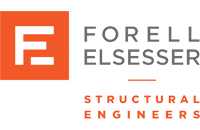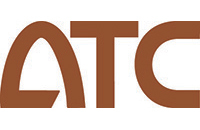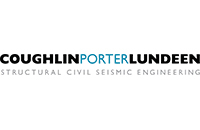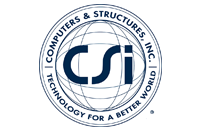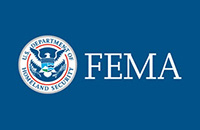Paper Formats
The 12NCEE program will be designed with community-submitted papers. Papers will be a maximum of 4 pages in length, with an abstract limited to 200 words, and a maximum of 5 figures (included in the 4 page limit). References are not included in the page limit but must be formatted per the 12NCEE style. There will be no preliminary abstract submission and review. The first and only submission will be a 4-page paper manuscript. All papers must be submitted in the 12NCEE paper template. This format and length is designed to be similar to a ‘technical note’ accepted by many technical journals. Formatting instructions are available here.
Special Sessions
The conference will also include a small number of special sessions. Attractive special session proposals cross disciplinary and general topic boundaries, and raise challenging technical-social issues. The program committee is particularly interested in special session proposals at the intersection of earthquake engineering with social justice, sustainability, or climate change adaptation, as well as proposals that address the complexity of response and recovery from simultaneous disasters; lessons learned from COVID for mitigation, preparedness, response, and recovery; and diversity, equity, and inclusion. We also seek special session proposals that focus on earthquake engineering in Utah and the surrounding region.
Special sessions can be mini-workshops, short presentations followed by panel discussions, debates, or other unique and engaging formats. They should not be merely a collection of presentations in a general topic area. This type of session, titled a Technical Topic Session, will be built by the Program Committee after reviewing the submitted papers. The deadline for submitting special session proposals was 11:59 PM (Pacific Time) on October 1, 2021.
Special session proposals will be reviewed for content and completeness of session details. Proposals should include a session title, the session format, a description of the session, and the session speakers. Special session proposers will be notified of acceptance by October 29, 2021. Upon acceptance, each special session organizer shall submit a conference paper that contains at least a short session overview along with the paper submission fee. All special session presenters within the accepted session will also be required to submit a conference paper that contains at least a short presentation abstract along with the paper submission fee. For more information, see the FAQ. Special session organizers and participants may submit those individual papers via the submission portal here.
Special session organizers and speakers should use the existing 12NCEE Paper Template when submitting their paper or abstract.
- For organizers: The one-page presentation abstract should include the special session title as the paper's title and the final session details/description as the abstract. If your details/description exceed 200 words, please continue it in the body of the paper. You should also include your final list of speakers, but they don't need to be listed in any particular format. If you choose to submit just a one page abstract, there is no need to include any body text. If you choose to submit a full paper, continue your writing in the body of the paper.
- For speakers: The one-page presentation abstract should include the speaker's presentation title as the paper's title and a brief description of their presentation as an abstract. If you choose to submit just a one page abstract, there is no need to include any body text. If you choose to submit a full paper, continue your writing in the body of the paper.
Submission of Papers for Review
Authors must submit papers online via the paper submission portal. The paper deadline was Monday, November 15th at 12:00 PM (noon) Pacific Time. A $350 submission fee must accompany the submission of each paper. This fee will act as a registration deposit that can be applied to discount a conference registration. An author can apply up to two registration deposits to their conference registration.
Paper Selection Criteria
The papers will be reviewed for both content, considering significance, originality and robustness of the material presented, and clarity of concepts and organization. Papers are expected to be free from commercialism.
Notification of Acceptance
Authors will receive confirmation of acceptance of their papers, including the presentation type (traditional oral, lightning, or poster) and any review comments, by February 28, 2021. Final revised papers will be due by April 25, 2022. Final presentation session details, including date and time, will be emailed to authors by March 28, 2022.
Technical Program Topic Areas
Earth Science and Ground Motions
- Seismicity, Earthquake Sources, and Earthquake Geology
- Engineering Seismology, Hazard Applications, and Operational Earthquake Forecasting
- Ground Motion Modeling
- High-Performance Computing and Ground Motion Simulation
- Instrumentation, Data Collection, and Seismic Networks
Geotechnical Engineering
- Liquefaction and Ground Failures
- Soils, Foundations, Earth Retention Systems, and Underground Infrastructure
- Soil-Structure Interaction
- Ground Improvement
- Numerical Modeling and Advances in Non-Linear Modeling Tools
- Experimental Methods
- Case Histories
- Performance-Based Design and Improvements to Codes and Practice
Risk/Loss Modeling, Planning, and Response
- Fragility and Vulnerability Modeling
- Risk and Loss Assessment and Their Socioeconomic Impacts
- Multi-Hazard Risk Assessment and Cascading Hazards Following Earthquakes
- Tsunami Hazard Assessment, Design, and Recovery
- Insurance Applications and Catastrophe Models
- Fire Following Earthquake
Social Science, Public Health, and Public Policy
- Earthquake Response, Emergency Management, Damage Assessment, and Recovery
- Earthquake Effects Mitigation and Resilience Building
- Socioeconomic Issues and Public Policy
- Earthquakes and Public Health
- Information Technology and Collaboration
- Lessons Learned from the COVID-19 Pandemic
- Earthquakes and Social Justice
Structural Engineering Practice
- Repair and Retrofit
- Tall Building Analysis and Design
- Non-Structural Components and Systems
- Bridge Structures
- Building Structures
- Innovative Systems
- Performance-Based Design, Including Designing for Resilience and Functional Recovery
Structural Engineering Research
- Repair and Retrofit
- Non-Structural Components and Systems
- Advances in Non-Linear Modeling Tools and High-Performance Computing
- Bridge Structures
- Building Structures
- Experimental Methods
- Performance-Based Design, Including Designing for Resilience and Functional Recovery
- Structural Health Monitoring
Transportation and Lifelines
- Risk and Resilience of Distributed Infrastructure and Lifelines
- Performance-Based Engineering of Lifelines
- Seismic Hazard Assessment for Transportation and Lifelines
- Seismic Isolation, Energy Dissipation, and Control Systems for Lifelines
Other and Cross-Cutting Topics
- Reconnaissance, Lessons Learned from Recent Earthquakes, and Post-Earthquake Assessment and Response
- Education and Outreach
- Critical Infrastructure (Hospitals, Schools, Power Plants, Dams, Ports)
- Earthquake Engineering, Mitigation, Preparedness, Response, and Recovery in Utah and on the Wasatch Fault
- Lessons learned from the COVID-19 Pandemic
- Machine Learning and AI Applications to Earthquake Engineering
Special Sessions
- Intersection of Earthquake Engineering with Social Justice
- Intersection of Earthquake Engineering with Sustainability or Climate Adaptation
- Response and Recovery from Simultaneous Disasters
- Diversity, Equity, and Inclusion
- Lessons Learned from the COVID-19 Pandemic
- Other
Download the Call for Papers as a pdf here.



